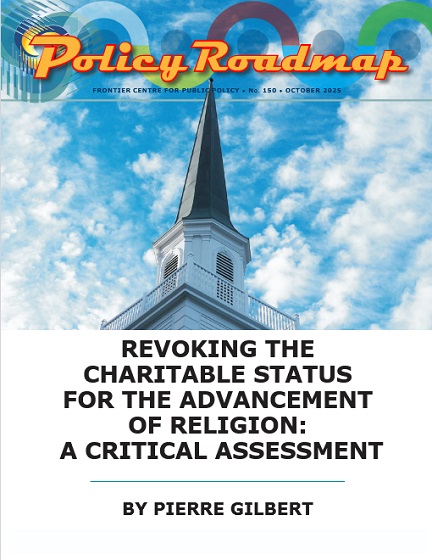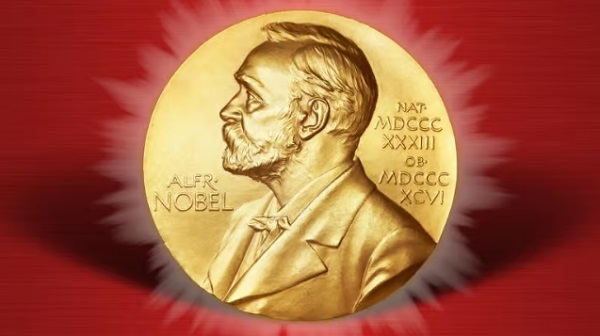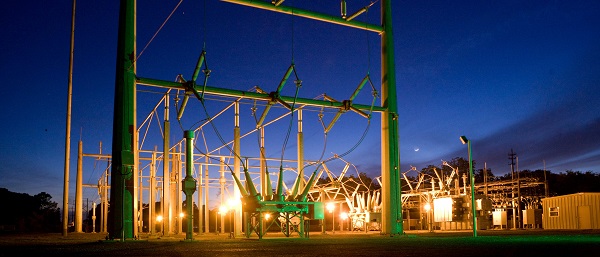Frontier Centre for Public Policy
‘Hottest Year in History’ Alarms are False

From the Frontier Centre for Public Policy
By Ian Madsen
It’s that time of year for breathless reports about planetary heating. Multilateral institutions, including the United Nations, recently made worldwide headlines, proclaiming 2023 as the hottest year in history.
The increase in average temperature, versus the longer-term average from 1850 to 1900, was a rise of 1.48 degrees Celsius. However, with the considerable difficulty of having truly comparable sets of measurements (from different sites in different years), one should treat such claims carefully. Interested parties use them to promote ‘solutions’ that could do more harm than good. It is notable that this new ‘high’ temperature was only 0.17 degree Celsius higher than in 2016.
NASA notes five factors explaining higher temperatures. Only one is the ‘usual suspect,’ greenhouse gases (mainly carbon dioxide, ‘CO2’). The other four are: the El Niño Southern Oscillation, ‘ENSO’, cycle; aerosol levels (such as smoke, dust and air pollution); volcanic eruptions; and general ocean temperature level and trends. NASA says the first and last of these affect current overall temperature.
The world has been in what meteorologists call an El Niño phase, which brings much higher temperatures to most of the world when it prevails. The oceans have also been gradually warming for decades, with occasional pauses, as in the period 1998-2013.
There are other major reasons to make an observer skeptical of extreme claims. The first is that this is a ‘history’ that is relatively short; i.e., the past 150 years (or even, in practice, much less). A second reason is that wide-scale, reliable global satellite temperature measurement has only been possible since the 1970’s. Before that, temperature monitoring was not systematic.
Until the 1880’s, temperature recordings were mostly in either North America or Europe, and hence show major data biases. Another crucial bias was that many weather stations are in or close to cities, which grew and warmed as they burned more coal (and, later on, more oil and natural gas), causing the heat island effect. The cities, growing gently warmer, also grew toward the weather stations, usually located on the outskirts of cities, especially the stations at airports.
For example, there are two weather stations in Winnipeg – one at the wind-swept airport and the other in the heart of downtown at the Forks. An analysis back in 2007 showed the temperature difference between the two locations to be 1.57 degrees warmer at the Forks. So closing or ignoring the airport temperature measurement location would “on paper” show warming in Winnipeg. It will be the same with most major Canadian airports.
Another valid way to challenge an assertion that 2023 was history’s hottest year, is to examine other time periods to see if one was hotter. The most well known such period came in the 1930’s, which was hotter and drier than the decades before or after. High temperatures set many new records that remain unbroken. The 1970’s were cool, despite rising CO2 emissions.
The Medieval Warm Period, approximately AD 750-1350, was much warmer than today. Farming was commonplace in Greenland, and vineyards grew in Britain. Industrialization began in the 1750’s, so, increased levels of greenhouse gas emissions could not and did not cause ancient warming. Nor did lower CO2 emissions cause the subsequent cooling of the Earth’s atmosphere, which culminated in what is now called the Little Ice Age, AD 1350-1850, from which we are still emerging.
According to interested parties the past year may have set records, but there is no evidence that it was the ‘hottest’.
Its summer time. Enjoy the hot weather. Ignore the climate doomsters.
Ian Madsen is the Senior Policy Analyst at the Frontier Centre for Public Policy
Business
Finance Committee Recommendation To Revoke Charitable Status For Religion Short Sighted And Destructive

From the Frontier Centre for Public Policy
A new report from the Frontier Centre for Public Policy warns that proposed changes to Canada’s Income Tax Act could have devastating consequences for churches and faith-based organizations nationwide.
Revoking the Charitable Status for the Advancement of Religion: A Critical Assessment, by senior fellow Pierre Gilbert, responds to the 2025 Standing Committee on Finance’s recommendation to remove “advancement of religion” as a recognized charitable purpose.
If adopted, the measure could strip churches, mosques, synagogues, temples and religious charities of their charitable status. The impact would include the loss of income tax exemptions and the inability to issue charitable tax receipts. They could also face a one-time penalty tax that effectively wipes out most of what they own.
“The committee’s recommendation, driven by lobbying from the BC Humanist Association, represents a direct threat to religious freedom and the vital role faith communities play in Canadian society,” said Gilbert. “Religious organizations contribute an estimated $16.5 billion annually to Canada through social services, education, community programs and cultural preservation. Revoking their charitable status would be both fiscally shortsighted and socially destructive.”
The report traces the origins of charitable status in English common law, examines the rise of secularism and fiscal pressures driving the proposed change, and calls on churches to proactively respond through education, advocacy and reasserting their public mission.
Download full PDF here. (30 pages)
Energy
Indigenous Communities Support Pipelines, Why No One Talks About That

John Desjarlais of the Indigenous Resource Network and Norway PM Jonas Gahr at 2024 Arctic Frontiers Conference
From the Frontier Centre for Public Policy
Many Indigenous communities support pipelines and resource projects—but their voices are often drowned out by noisy activists and media narratives. Engineer and policy expert John Desjarlais, who works closely with First Nations, explains what Indigenous communities actually want and why their perspectives are ignored. Projects like Cedar LNG and Woodfibre LNG show Indigenous leadership and co-governance in action. Natural resources are foundational for Canada—and his vision might surprise you. (45 minutes)
-

 Alberta1 day ago
Alberta1 day agoFact, fiction, and the pipeline that’s paying Canada’s rent
-

 2025 Federal Election1 day ago
2025 Federal Election1 day agoProtestor Behind ‘Longest Ballot’ Chaos targeting Poilievre pontificates to Commons Committee
-

 Business2 days ago
Business2 days agoUN, Gates Foundation push for digital ID across 50 nations by 2028
-

 Brownstone Institute2 days ago
Brownstone Institute2 days agoTrump Covets the Nobel Peace Prize
-

 COVID-192 days ago
COVID-192 days agoThe Trials of Liberty: What the Truckers Taught Canada About Power and Protest
-

 Business2 days ago
Business2 days agoTruckers see pay surge as ICE sweeps illegal drivers off U.S. highways
-

 International2 days ago
International2 days agoHamas releases all living hostages under Trump peace plan
-

 Business1 day ago
Business1 day agoFinance Titans May Have Found Trojan Horse For ‘Climate Mandates’






